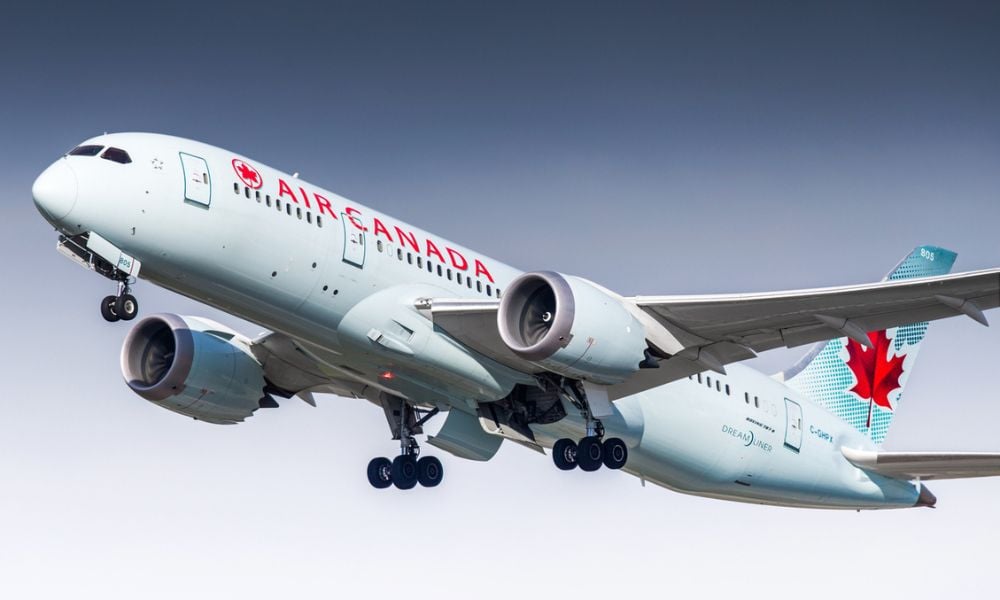Worker also reportedly 'joked' about hijacking

A federal arbitrator has sided with Air Canada in a legal dispute around testing the hair strand of one of its flight attendants for possible use of marijuana.
The worker – identified only as CB – booked off sick in March this year. Occupational Health Services determined that the worker was fit to return to work as of April 17, 2024.
However, Air Canada informed the worker he was being held out of service and that he was required to be at the Occupational Health Services Clinic on April 18.
At the clinic, the worker consented to have a hair strand taken from him to be sent to a lab for testing.
Reports of marijuana use, hijacking joke
But the Air Canada worker did not know that, on April 1, two cabin crew members who were housemates with the worker filed a report to their employer, alleging changes in CB’s behaviour and use of marijuana.
The first crew member’s report noted that CB “seemed dazed every other day and appeared to be under the influence of substances”.
The second crew member’s report noted that CB owned a bong and was using it to smoke marijuana. The crew member also alleged that the worker said that if he was caught by the company using marijuana, he had other work options available, He also referred to hijacking a plane “with dark humour”.
Overall, CB, the two cabin crew members and 11 other company employees were sharing a single house, and CB was expelled from the house on May 1.
Only a hair strand test could determine whether the worker was actually using marijuana, according to Air Canada.
Previously, a federal arbitrator reinstated a railway worker fired for failing a drug test because the employer was unable to establish any impairment while at work.
Arbitrator sides with Air Canada
On April 22, the Canadian Union of Public Employees (CUPE) filed a motion for the company to cease and desist from taking a hair strand testing from the grievor and prohibit the company from relying on any information revealed by the test until “Abuse of Management Rights was determined, a grievance that was filed” by the worker.
The first request was moot, as the test was already conducted, but Chief Arbitrator William Kaplan noted that Air Canada had the right to conduct the test.
“The company had an entirely legitimate safety interest to protect as the grievor had been cleared to return to work; it had reasonable cause to request testing before he returned to active employment. Put another way, the company needed to ensure the grievor was not using proscribed substances before he resumed flight duties where he would be responsible for the safety of passengers and crew,” he said in his decision.
“Indeed, in the face of those reports from the grievor’s colleagues and housemates, it would have been derelict of the company to ignore the information it had received.”
Air Canada also has the right to use the result of the hair test, said Kaplan.
“The hair strand test results will yield useful information that can now be shared in the usual way and subject to the usual safeguards,” he said.
The arbitrator noted that, under the Air Canada Alcohol and Drug Policy, workers are required to “promptly inform Occupational Health of the use of any medications which may cause impairment and/or impact their ability to perform their duties safely and effectively”.
In another case, an arbitrator ruled that an Ontario employer breached a worker’s privacy by ordering him to undergo post-incident drug and alcohol testing – even though it was a significant event that could justify testing.




